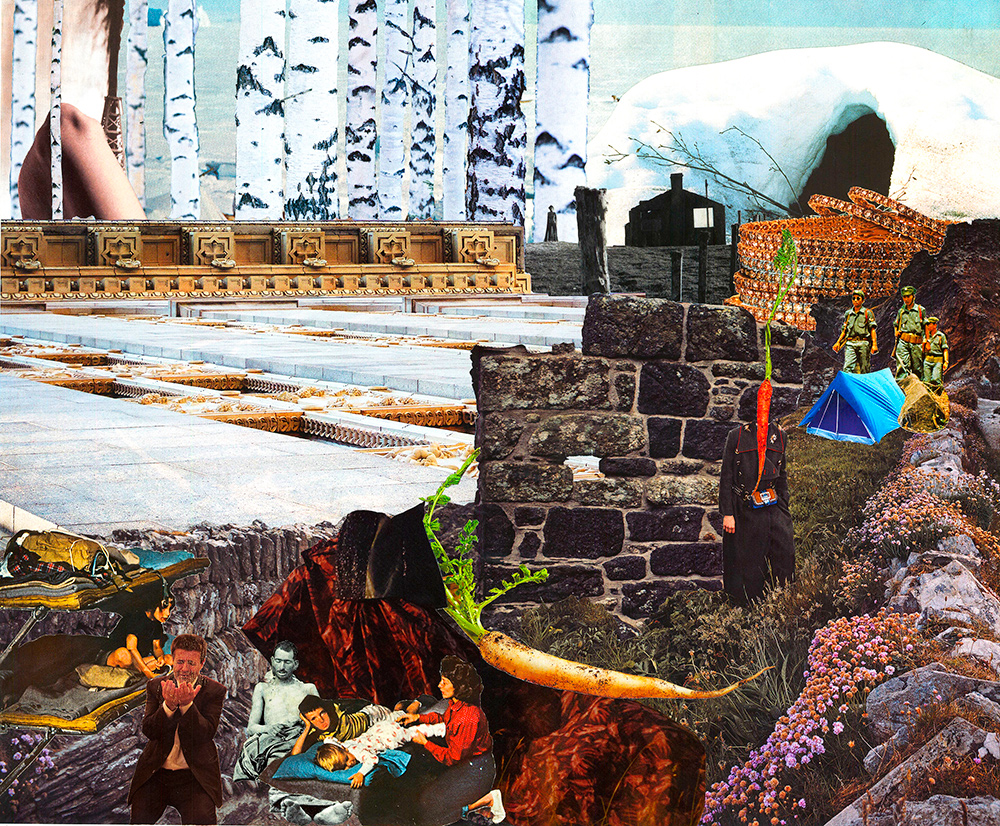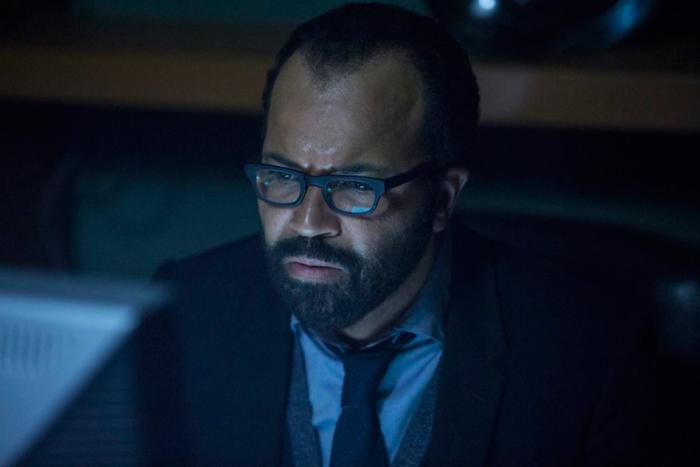
Mouthful is a new monthly column about the author’s relationship with food, ten years into recovery from anorexia and bulimia.
I arrived in Denver around midnight on Halloween for a six-week stay, and I spent my first week unable to eat. Some months are harder than others, which sounds flippant but isn’t meant to be. This wasn’t my kitchen. I didn’t have a convenient way to get to the supermarket. I wasn’t familiar with takeout options around my areas of residence and work and by the time I familiarized myself with them, the stress of being away from home and away from my partner and our routine had obliterated my appetite. Food looked and tasted gray. It was too heavy, too fatty, too salty, too sweet. I ate one or two handfuls of Jelly Bellys every day from the jar I found in my studio, and drank coffee and Coors, and smoked legal marijuana. Sometimes I ate a clementine or eggs but mostly mealtimes passed and I let them.
After a week, my clothes began to fit differently. I liked the feeling, which scared me, so I told my husband what was going on. I asked him to check in with me sometimes to make sure I was eating. I sent him pictures of meals before I ate them, suggesting that I intended to eat them, but oftentimes I couldn’t follow through, though I sincerely wanted to. I went out for tacos with a friend one afternoon and confessed to him that I was having trouble eating: I felt that by telling him, I was holding myself accountable, so I ordered three tacos—ate one, and took the other two to go. I tried to eat the leftovers later, but the first bite was disgusting so I threw the rest away. On my ninth day in Denver, I awoke to the news that Donald Trump had been elected president.
*
My work here in Denver has led me to interact closely with the homeless community. I’m here as the resident artist of a social justice-oriented art gallery, and part of my role involves leading a group of high school students from an underserved community in bringing together an art exhibition about homelessness in Denver. Many of these students are Latino or Chicano, the children of immigrants or immigrants themselves. Two are in an interracial relationship. At least one is LGBTQ. One, whom I’ll call Soraya, comes from an unstable home and has several friends who currently live on the streets. She has registered at the youth shelter in preparation for being forced to choose one day between living at home or running away.
By Election Day, I had known these youths for less than a week—actually, I had only met them one time, for two hours, after which I forgot most of their names. Facing them a second time, after Trump was elected president, I knew that I didn’t have the right words for them, to help them feel safer.
Partially, the problem was that I was too stuck in my own feelings about it: my hurt and betrayal, my disgust, my own anger and terror. I was hurting selfishly. For these kids, though, the election of Donald Trump was further confirmation that the world doesn’t want them. That in fact, it wants to hurt them.
They take part in an after-school program run by a local nonprofit agency providing resources for families and children in need. Many of them take advantage of the free meals the agency serves after school, picking up Lunchables-style cartons and juice boxes left out for them on a table inside the door of the resource center, then participating in whatever programming has been prepared for them that day.
I’m with them twice a week, for two hours each time. As we work together, I overhear them talking about their lives and pick up on the details. Their determination to survive is astonishing to me. One night, I walked with them past the former site of a homeless encampment, looking for stray pieces of rubbish to use in our forthcoming art installation, and a question arose as to whether we should collect a half-full bag of kettle corn sitting on a fencepost. “No,” Soraya said. “If it looks preserved, leave it be.”
*
Less than a week after the nation learned that Donald Trump was elected president, I spent a night outside in a part of Denver where people experiencing homelessness tended to pitch their tents. The election results had sent me into a tailspin in which I’d cried on and off for days in addition to starving, but in preparation for this night, I stopped at a supermarket and bought a deli sandwich as big as my forearm. I ate half of it sitting on the curb outside the supermarket, thinking over what I was about to do, and gave the other half to the first woman I saw reclining on the ground under a blanket outside the rescue mission. I was waiting for the City of Denver to conduct one of its notorious “homeless sweeps”: cleanup projects in which Public Works makes everyone deconstruct their encampments and clear the sidewalk so it can be pressure washed. In the past, these sweeps have been used as an excuse to harass homeless people. Whichever of their belongings couldn’t be physically carried were confiscated and thrown away, or taken to a storage facility in an inconvenient location and never seen again. Though I’d been told that this sweep wouldn’t happen until the morning, I’d decided to stay overnight on the basis that former sweeps had been conducted under cover of darkness. I also wanted to interview people. I spent most of the night walking in circles around the block, engaging in conversations. But in truth, I didn’t spend the entire night outside. My studio is a few blocks from this location: twice, I took advantage of my privilege to sleep inside for an hour or two.
It’s easy to confuse wanting something for needing it. Desire is physical and outside of our control; it’s in direct conflict with reason, which recognizes limitation. Desire doesn’t know limitation so long as the object of our desire can be seen. As long as we see it, we continue to want it, even if we can’t have it, even if we don’t want to want it.
The sweep started at eight in the morning and lasted all day. The heat was grueling. Tensions ran high, with homeless citizens locking arms in protest, chanting slogans, waving cardboard signs and giving interviews to the media. At one point, a man tied himself to his shopping cart and knelt on the ground crying, swearing that he wouldn’t let his newborn daughter’s only possessions be stolen. As the city’s explanation for conducting the sweeps is that they hope they will encourage people experiencing homelessness to seek social services and take advantage of shelter options, I asked some of the people affected by this sweep about their experiences in shelters. “The food is spoiled,” one man told me, indicating a shelter within walking distance, one of the biggest in the city. “Every time I eat there, I get food poisoning.”
Throughout the day, I witnessed cars come and go with cases of water for the protesters. I watched a man arrive with a hundred tamales from the Mexican takeout restaurant down the street. I watched the Denver Police Department ultimately decide to leave people alone until the following afternoon. Then I walked back to my studio, collected my belongings, and took an Uber to the house where I’m staying, a three-story Italianate single-family home in a historic district, owned by a nice couple who bought it thirty years ago. I took a hot shower in my personal bathroom on the second floor and washed my hair and processed all that I had witnessed over the last two days. I put on pajamas and padded downstairs to the kitchen, where I ordered Vietnamese delivery, which I ate looking around the empty room at all the hungry faces looking back at me.
*
On the third day of the sweeps, a woman I’d met outside the mission, “Shannon,” came to be interviewed by the kids for the exhibition. It had begun to snow by the time Public Works showed up that morning to clean the sidewalk, the first snow of the season, and the Denver Police had passed along the message that they would now be conducting the sweeps five times a week. Shannon had been living inside the mission but was kicked out that afternoon when they discovered that she was talking to her lawyer about the fact that they wouldn’t let her keep her teddy bear, which she carries for PTSD. She would now have to pitch a tent on the snowy sidewalk and face the city’s harassment. Nonetheless, she showed up at the gallery at five o’clock, like we’d planned.
The goal of the interview was for the student to come away with Shannon’s life story in the form of an audio file that she would edit and display alongside a portrait of Shannon. I didn’t hear the interview as it was happening because I was in a different part of the gallery showing other kids how to cold call for solicitations of art and writing for the zines we’re making. But at the end of the two hours, I helped Shannon gather some tarps and the leftover pizza, and I walked with her the few blocks back to her tent, which her friend had been guarding. I climbed inside with her and she began to tell me her story: Now thirty-four, she has been on the streets on and off for seventeen years. She was a month away from graduating high school when she ran away from home with camping equipment she had stolen from her parents’ closet. One of ten children from a Catholic family, she was tired of her father beating her for being gay and autistic. Nobody reported her missing, and she finished high school living in the woods beside campus. “Nobody cared,” she told me, smiling slightly.
A flashlight shone through the fabric of her tent, interrupting her story. At first I thought the police had come to make everyone move despite the fact that it was now snowing heavily, but then a glove appeared in the open flap holding a pair of hand warmers. Another appeared holding a box of tampons. “Just for the ladies,” it joked. Then a trash bag appeared filled with bagels, and Shannon and I each took one. “Church groups come by every night,” she explained to me. As I was leaving her tent later, she reminded me to take my bagel.
*
It’s easy to confuse wanting something for needing it. Desire is physical and outside of our control; it’s in direct conflict with reason, which recognizes limitation. Desire doesn’t know limitation so long as the object of our desire can be seen. As long as we see it, we continue to want it, even if we can’t have it, even if we don’t want to want it. It can feel painful not to have what we want, but the intensity of our desire doesn’t transform that desire into a need. For instance, an overwhelming desire for another person doesn’t make the reciprocation of our desire a necessity for survival. That’s the ego talking: the fear of rejection, failure, or disappointment. These feelings might make us “wish we were dead,” but feeling them will not actually kill us.
Likewise, calling a need a desire doesn’t make it so. A need is something that supports our ability to live. Not just survive, but live—in other words, to slow the acceleration of death. A person may be surviving on the streets but is nonetheless, I would argue, not getting all of their needs met. They may be experiencing malnutrition, parasitic infestation, a lack of necessary medication, drug addiction, accidental pregnancy, mental illness—the list goes on, as a result of unstable or nonexistent housing. And yet, if their needs were met, they would thrive.
I worry for the future of youth like Soraya under a Trump presidency for the very reason that he doesn’t give much mind to the difference between wanting something and needing it. His immediate desires have overridden the needs of others and the common good time and time again, and that’s not a presidential profile. And I worry for these other youths’ families, some of whom are undocumented, but whose children have only ever known this country; or who rely on government assistance to feed their children each month, from programs that Trump has criticized and threatened to slash; or who are interracial and have faced heightened discrimination in the streets and the workplace since Trump’s election; and for these youths who already struggle in schools whose budgets stand to be cut further; and who are brown, and LGBTQ, and who are—like all of us, never forget this—precariously close to having to sleep outside.
As humans, we have a need to feel safe where we live. In our bodies; in our dwellings; in our communities; in our country. My recent struggle to eat came about as a result of not feeling safe where I was, and even more so after Trump was elected president, which is exactly why reacting in the way I did—to stop eating—was misguided, for it created a situation in which I felt even less safe. Removing one of my most essential needs didn’t bring me any closer to the thing I wanted. And starving myself won’t give these people homes or make these youth any safer, or any more loved. Starving myself doesn’t leave more food for others. I deserve to eat as much as they do.
Whatever happens over the next four years, remember that you didn’t bring this abuse upon yourself. You don’t deserve it. You don’t have to take it. If your needs aren’t being met, it’s not because you have too many needs—don’t make yourself smaller by rationalizing your needs as desires. They are not. You need certain things to live. You need to feed yourself and grow large, and strong, and set out to find others. If I’ve learned anything this month, and especially from the younger generation, it’s that even when we’re in a desperate situation ourselves, we still have time to stop and listen to each other. To see each other. To feed each other.
Collage by Sarah Gerard.





